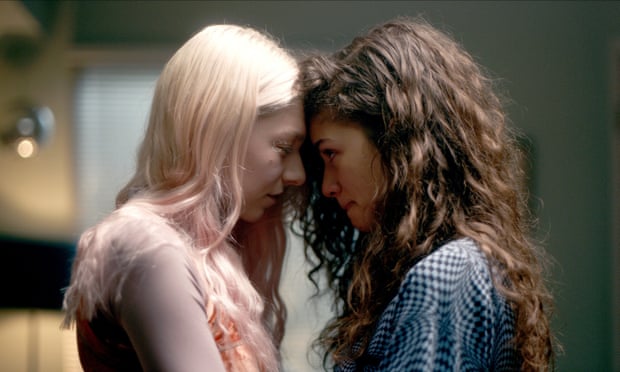‘Euphoria’ Review: The Dizzying High School Drama Series


“Euphoria” is centered on a disturbing, terrible, and intimate story, as well as a haunting, painful, and emotional performance by its protagonist, Zendaya. Rue Bennett, who has been in films such as “The Greatest Showman” and “K.C. Undercover,” plays a 17-year-old adolescent in distress.
Rue is an addict, and a tough one at that, having spent the summer in recovery when her younger sister discovered her covered in her own vomit after a bad heroin overdose. Rue constantly puts herself in perilous circumstances throughout the first four episodes, all in search of a momentary feeling of – not euphoria, but nothingness; an escape from the mundane existence that ordinarily consumes her days.
Zendaya is outstanding in every way. She injects heartbreaking levity into scenes in which her spiraling adolescent feels invincible rather than frail, and the way she carries herself, narrates each episode, and generally bears the weight of carrying a series is as appealing as it is authoritative. You care about Rue and you are also taken aback by her, which is no small feat.

However, an assault of other sad experiences frequently overshadows the reality of her trauma. Sam Levinson’s HBO drama, like Rue, takes on more than it can manage — or, perhaps more accurately, more than its viewers can handle. “Euphoria’s” realistic depiction of heavy, gut-churning adolescent events, which extends beyond Rue’s path to many of her disturbed high school colleagues, adds up to a taxing, infuriating experience.
Levinson — who directs five of the eight episodes of the first season, with Augustine Frizzell helming the pilot — can’t escape the collective darkness at the heart of each individual story, despite his deft transitions, brisk pace, and dynamic visual stylings. They’re both depressing when they’re apart. They’re terrifying when they’re all together.
“Euphoria” will be a very unpleasant experience for some people. Others may find it therapeutic. It’s really sharp in terms of aesthetics. Levinson seamlessly transitions from subject to subject, event to event, with deft touches strewn around. In the fourth episode of season one, a series of one-shots takes you around a midnight carnival, demonstrating his precise pacing.

There’s a gradual build to a crescendo, but the popular adolescent setting doesn’t yield any predictable outcomes. Levinson isn’t afraid of overt symbolism however; there’s a scene when the bright and beautiful day gives way to storm clouds and rain as Jules rides away from Rue; Rue’s sunshine is gone, and all that’s left is her addiction.
Despite Levinson’s mastery of his storytelling approach, Zendaya’s superb performance, and a rich authenticity that drives each scene, viewers should not expect to love the series, which is ultimately its worst flaw. The best they can hope for is to be moved by these kid’s plight.
“Euphoria” could make better use of its unblinking gaze with a little tweaking. A good sense of humor and a sight of goodness can make a big difference. In its current state, the extreme darkness dilutes the impact beyond blunt force trauma. There’s a link to be made with Rue and her trip, but happiness seems too far away.
